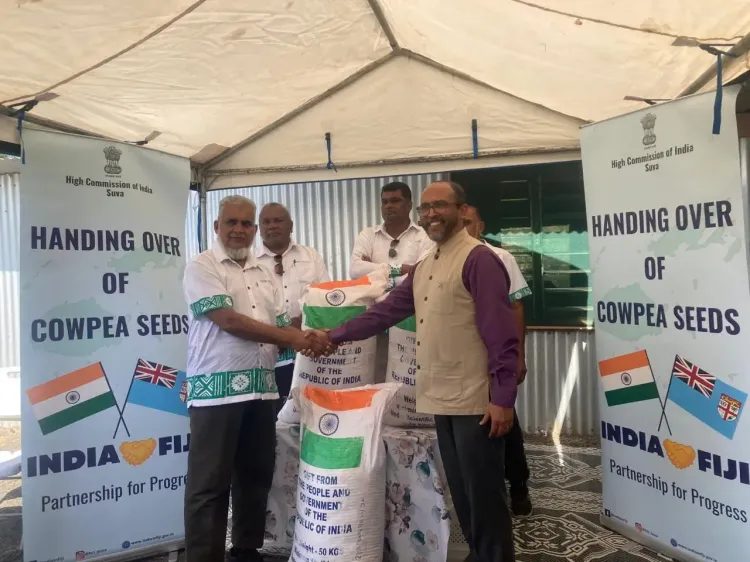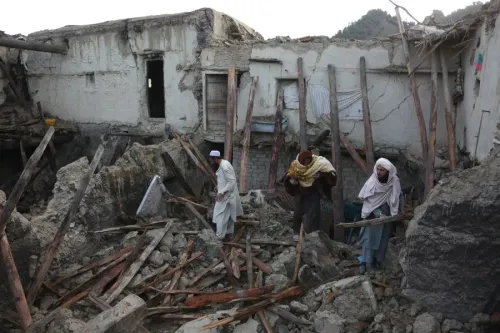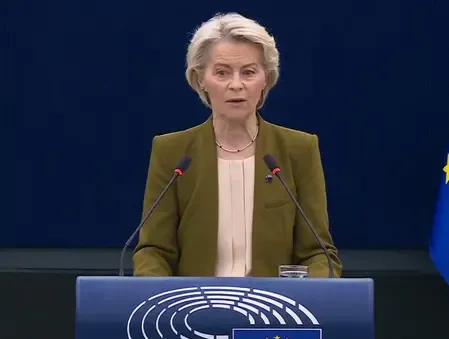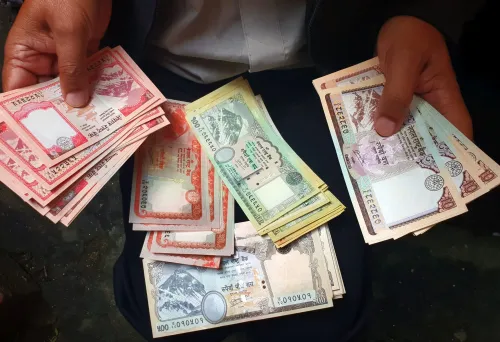Did India Deliver 5 Metric Tonnes of Black-Eyed Cowpea Seeds to Fiji for Agricultural Support?

Synopsis
Key Takeaways
- India's donation of cowpea seeds strengthens ties with Fiji.
- 5 metric tonnes of seeds aim to enhance food security.
- Local farmers will benefit from improved yields and incomes.
- Initiative aligns with India's 'Act East Policy.'
- Enhanced cooperation in agriculture and health sectors.
Suva, Aug 11 (NationPress) In a remarkable move aimed at strengthening ties with its Indo-Pacific allies, the Indian diplomatic mission has presented five metric tonnes of black-eyed cowpea seeds as humanitarian aid to the government of Fiji this past Monday.
This marks the initial shipment of seeds dispatched to Fiji, arriving in the city of Nadi. The initiative is designed to improve agricultural sustainability, assist local farmers, and enhance food security in the Pacific nation.
In a post on X, the Indian High Commission in Suva stated, "On behalf of the Government of India, the High Commission of India in Fiji delivered cowpea seeds to the Fiji Government in Sabeto, Nadi today. This initiative fortifies agricultural resilience, empowers farmers, and reinforces food security."
"Fiji's largest Cowpea project will significantly benefit local farmers by providing better yields, expanding crop diversity, and increasing incomes—ultimately strengthening rural livelihoods both now and for the future," it continued.
As reported by the Ministry of External Affairs (MEA), the first batch of seeds was dispatched from Delhi to Fiji on July 26.
India's humanitarian aid of 5 metric tonnes of black-eyed cowpea seeds aims to bolster agricultural production in Fiji as part of its 'Act East Policy.'
Earlier in July, India and Fiji convened the 6th Foreign Office Consultations in Suva, where they explored avenues to enhance bilateral collaboration in agriculture, health, education, capacity building, trade, investment, renewable energy, climate change, and cultural exchanges.
India has consistently been a development ally for Fiji, aiding various sectors and capacity-building initiatives such as the Indian Technical and Economic Cooperation (ITEC) programme, scholarships for Fijian students, and partnerships in the realm of digital transformation.
The recent Memorandum of Understanding (MoU) to recognize the Indian Pharmacopoeia also highlights the increased cooperation regarding pharmaceutical and medical standards.









